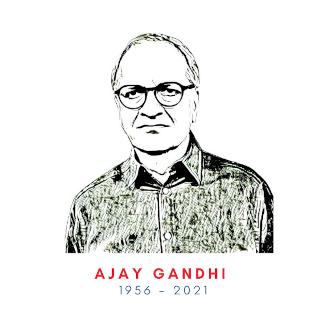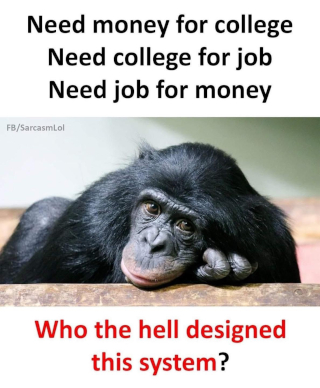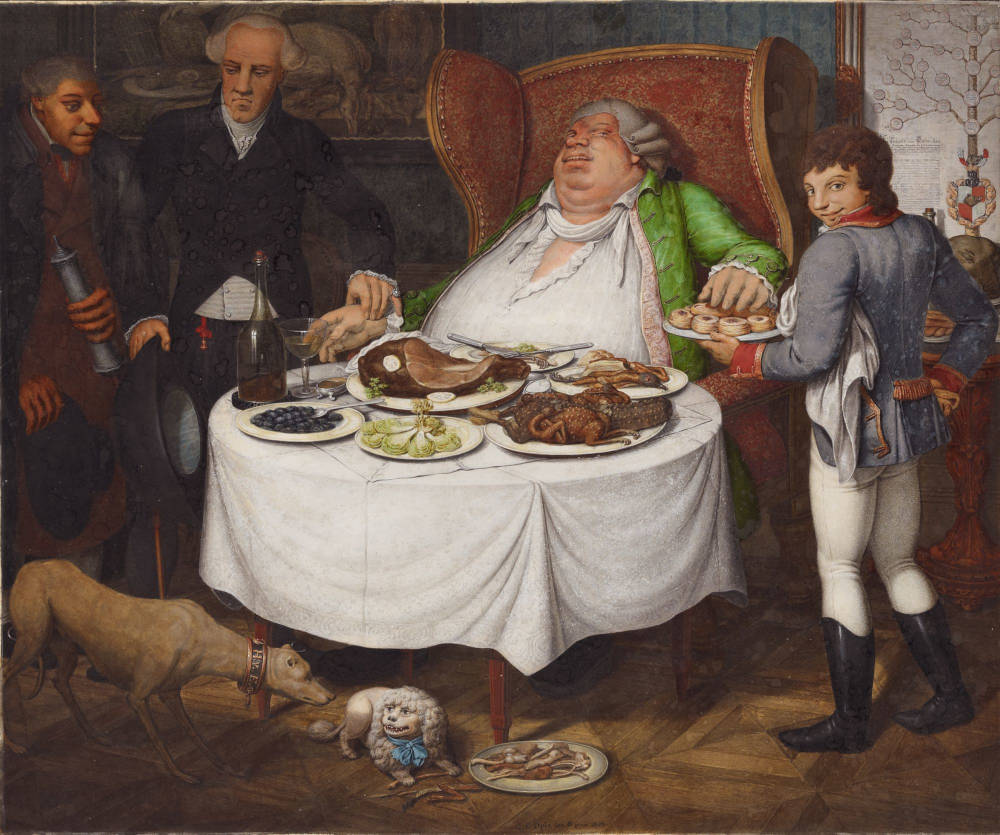[The Glutton, by Georg Emanuel Opiz, Public domain, via Wikimedia Commons]
Good morning,
How much do we really need? This is a question many people are asking themselves. Some passages in The Gift: Creativity and the Artist in the Modern World by Lewis Hyde had us thinking about that question.
“The desire to consume is a kind of lust. We long to have the world flow through us like air or food. We are thirsty and hungry for something that can only be carried inside bodies.”
To make his point, Hyde recounts a story.
“Once a man and his wife were sitting outside the front door with a roast chicken before them which they were going to eat between them. Then the man saw his old father coming along and quickly took the chicken and hid it, for he begrudged him any of it. The old man came, had a drink, and went away.
“Now the son was about to put the roast chicken back on the table, but when he reached for it, it had turned into a big toad that jumped in his face and stayed there and didn’t go away again.
“And if anybody tried to take it away, it would give them a poisonous look, as if about to jump in their faces, so that no one dared touch it. And the ungrateful son had to feed the toad every day, otherwise it would eat part of his face. And thus he went ceaselessly hither and yon about in the world.
“This toad is the hunger that appears when the gift stops moving, whenever one man’s gift becomes another man’s capital. To the degree that we desire the fruits of the gift, teeth appear when it is hidden away. When property is hoarded, thieves and beggars begin to be born to rich men’s wives. A story like this says that there is a force seeking to keep the gift in motion. Some property must perish—its preservation is beyond us. We have no choice. Or rather, our choice is whether to keep the gift moving or to be eaten with it. We choose between the toad’s dumb-lust and that other, more graceful perishing in which our hunger disappears as our gifts are consumed.”
Give it a thought. And have a good day!
In this issue
- Ajay Gandhi and the art of public discourse
- What children fear
- The cycle of life
Ajay Gandhi and the art of public discourse
In this age, it’s all too easy to offend and get offended, polarizing an already fractured world. So, it’s rare to find a person who brings people together, lets them discuss the most polarizing topics, and at the end of the day leave a world that’s more informed, wiser, and more importantly, kinder.

Ajay Gandhi, whom our colleagues Charles Assisi and NS Ramnath had the good fortune of meeting during the Hyderabad Literary Festival (HLF), was one of those rare persons. And he could achieve it through not only HLF but also Manthan, a series of talks, because he embodied those very qualities. (We had written about Ajay Gandhi’s approach in one of our earlier editions).
Here are three tributes that caught our attention.
“[Ajay Gandhi] built Manthan on three principles—no scope for personal issues or offensive questions in the discussions, the platform must be free for public and comfort of the audience comes first. ‘He ensured that the platform remained free for the audience. He always argued that a platform that is not free loses democratic spirit,’ Vikram says.
“Manthan attracted some top names from various fields from across the country. Musician TM Krishna, former finance minister Chidambaram, former RBI governor YV Reddy and student leader Kanhaiya Kumar are some of the well-known people to have used the platform to speak their mind.
“But none of these discourses triggered a row. ‘It’s because of Ajay’s insistence on discussing the topic alone, giving no scope for asking any personal or offensive questions that these discourses never triggered a controversy,’ Vikram says.” ~ Business Line
“Today, when he is no longer in our midst, we remember him more for the person he was—a person with a great sense of humour, an infectious laugh, an astonishing readiness to help, encourage and nurture. He had a personal connect with everyone he met—be it a gardener or an IAS officer. Simple, unassuming and modest, he always saw the good in people and was clear and committed to the liberal and progressive values he held dear. He is as much admired for building two grand institutions, namely Manthan and HLF, as he is for his rare and remarkable human qualities.” ~ K. Sujatha Rao, Mukti Bosco, Amrita Chak and Sunita Reddy in The Wire
“Ajay Gandhi is a personal loss to me and most of his admirers. Still remember the day when after a Manthan talk by me, he took me out for dinner along with his entire family. Such was the way he stitched his personal life, personal convictions and humanitarian work together. I just wished I had the chance to talk to him, one last time.” ~ Peri Maheshwer in Facebook
Dig deeper
- Manthan co-founder Ajay Gandhi passes away at 65
- A tribute to Ajay Gandhi, and his insatiable curiosity for knowledge
- My heart skips a beat
What children fear
What is the impact of the pandemic on children? This is a theme we discussed on our daily morning team call yesterday. Multiple narratives and conflicting signals are emerging from the ground. That is why this essay by Shelja Sen, co-founder of Children First, in The Indian Express had our attention. It asks some important questions.
“When children return to physical classes, let’s reflect on—what effect will this expectation for them to ‘get back on track and do it fast’ have on their mental health? In our hurry to ‘return to normality’, will we push our children into internalising their struggles as something ‘wrong with them’ and not being ‘worthy’? Is it fair on our children who have already been through so much?”
Sen goes on to make the point that “Stories don’t just describe our world but shape it. We make stories and stories make us. It might become very convenient to pigeonhole children into single stories—’he’s become addicted to the screen’, ‘pandemic has made her so lazy’, ‘he’s really fallen behind’. These are the words that will become woven into the single stories of their life.”
Therefore, she urges us to remember that “After the anonymity of online classes, it could be a daunting task to return to school after one-and-a-half years with the fear of scrutiny, ridicule and rejection.”
Dig deeper
The cycle of life

(Via WhatsApp)
Found anything interesting and noteworthy? Send it to us and we will share it through this newsletter.
And if you missed previous editions of this newsletter, they’re all archived here.
Bookmark Founding Fuel’s special section on Thriving in Volatile Times. All our stories on how individuals and businesses are responding to the pandemic until now are posted there.
Warm regards,
Team Founding Fuel
(Note: Founding Fuel may earn commissions for purchases made through the Amazon affiliate links in this article.)

